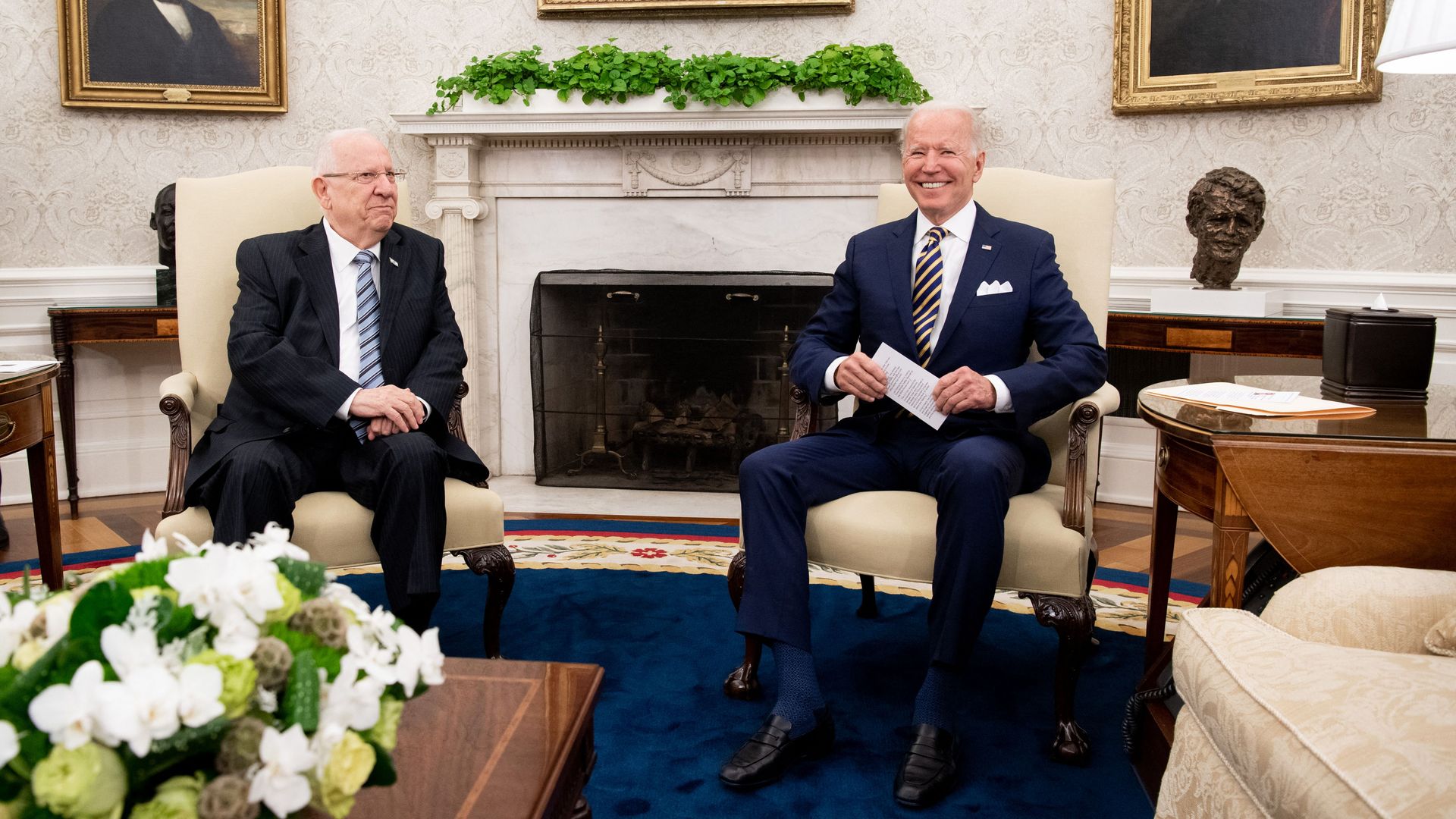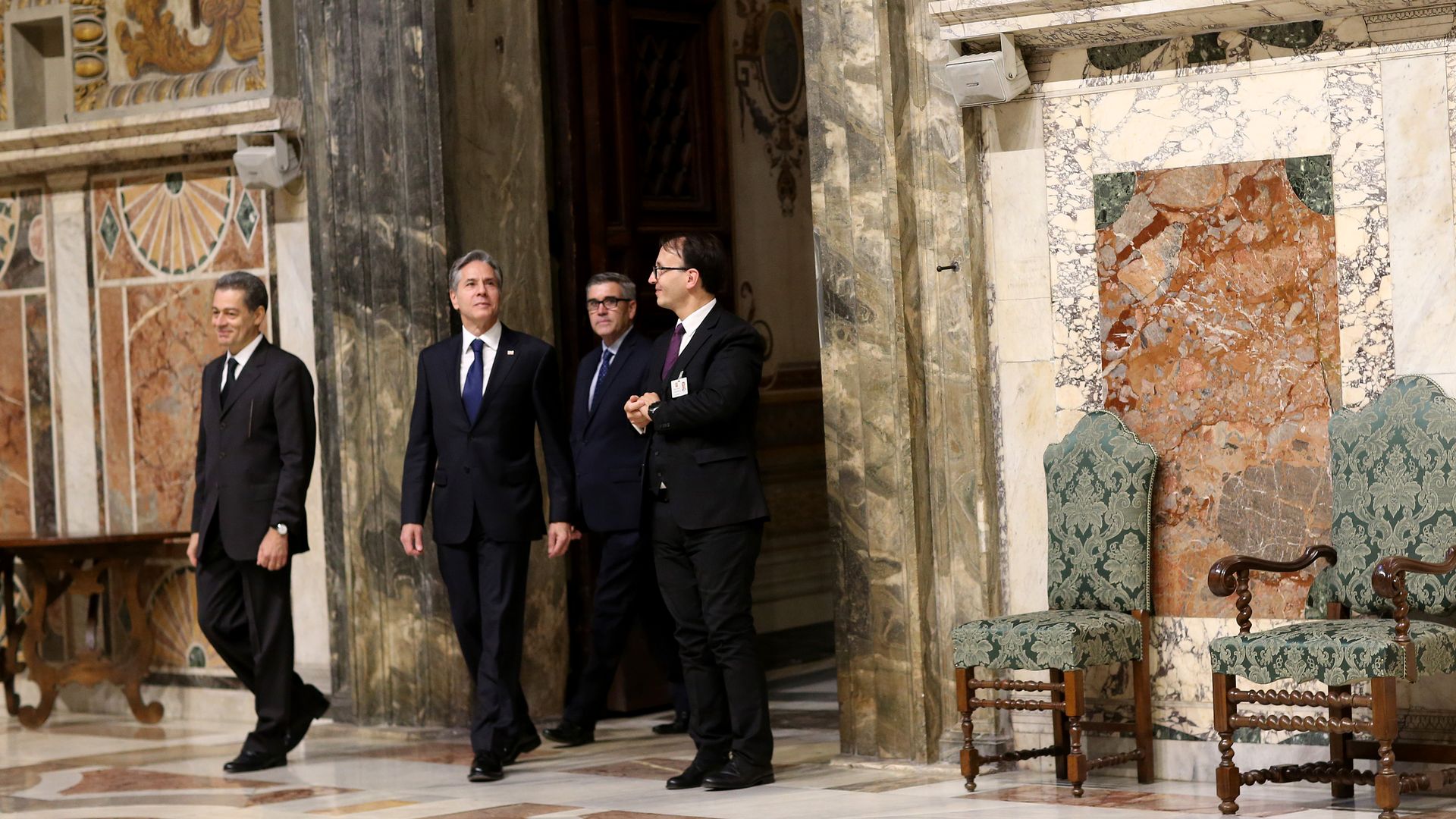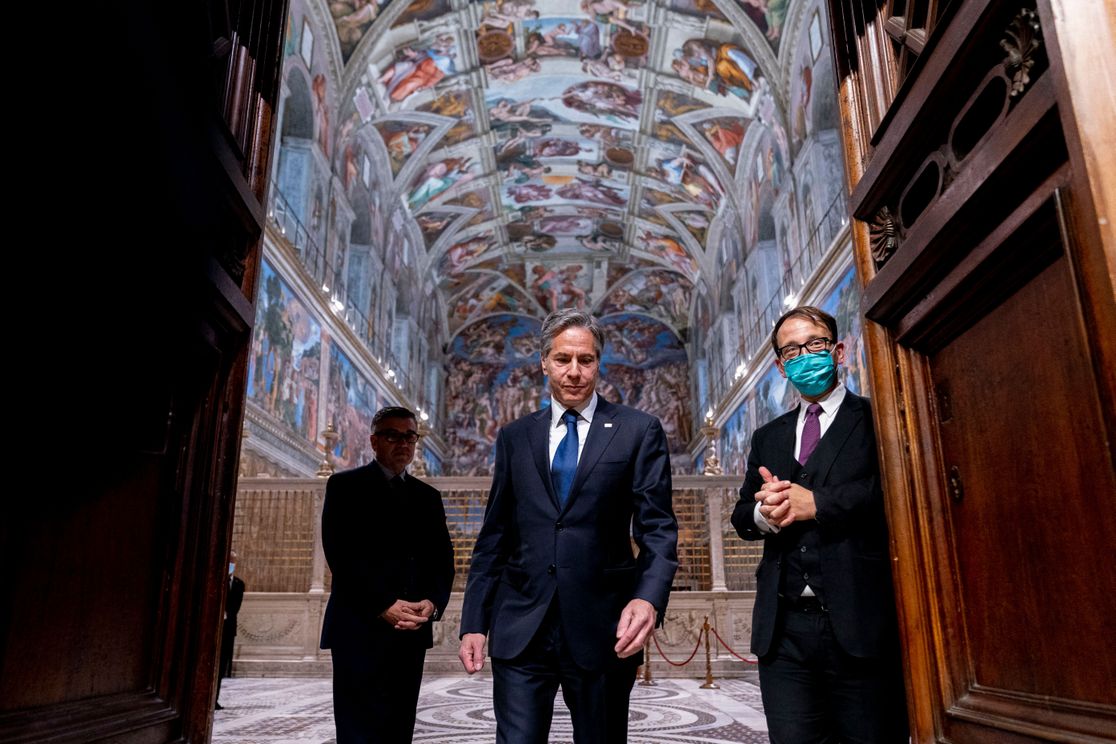| |
| |
| |
| Presented By UnitedHealth Group |
| |
| Axios Sneak Peek |
| By Alayna Treene and Hans Nichols ·Jun 28, 2021 |
| Welcome back to Sneak. The gentleman from Kentucky weighs in. Smart Brevity™ count: 1,226 words ... 4.5 minutes. Edited by Glen Johnson. |
| |
| |
| 1 big thing: McConnell's process approach to policy |
 |
|
| Illustration: Sarah Grillo/Axios |
| |
| Senate Minority Leader Mitch McConnell (R-Ky.) is trying to blunt momentum for the bipartisan infrastructure bill by focusing on process before policy, Axios' Alayna Treene writes. Why it matters: The author of "The Long Game" is once again trying to dictate the terms of congressional action by demanding today that Democratic leaders delink President Biden's second infrastructure plan from his first. The strategy lets McConnell gain some control of the debate, even if he ultimately supports the package. - It also gives any wavering members or GOP opponents a reason to potentially bail on the deal.
- McConnell used similar tactics to block President Obama's Supreme Court picks and President Trump's second impeachment.
The big picture: There's minimal wiggle room for Democratic leaders. - Senate Majority Leader Chuck Schumer (D-N.Y.) and House Speaker Nancy Pelosi (D-Calif.) not only have to get the bipartisan deal across the finish line, but also the partisan, "human" infrastructure bill.
- Both will be an uphill battle given the dynamics of a 50-50 Senate and Democrats' four-seat majority in the House.
- McConnell knows this and sees it as leverage.
The big question: Does McConnell actually have the muscle to stop this bill? - There are 10 Senate Republicans in the group that ultimately struck a deal with the White House, and only 10 GOP votes are needed to meet the Senate's 60-vote threshold to pass major legislation such as the bipartisan bill.
- Five of those advocates — Sens. Susan Collins of Maine, Mitt Romney of Utah, Bill Cassidy of Louisiana, Lisa Murkowski of Alaska and Rob Portman of Ohio — helped negotiate the package and will almost certainly vote for it.
- But as Politico's Burgess Everett first pointed out, the other five — Sens. Thom Tillis and Richard Burr of N.C., Todd Young of Indiana, Jerry Moran of Kansas and Lindsey Graham of South Carolina — could easily be persuaded against it by McConnell.
What to watch: McConnell has yet to endorse the bipartisan deal. It's unclear whether he even supports the underlying substance. - If he doesn't, then the process argument over the sequencing of the bills doesn't matter.
Keep reading. |
    |
| |
| |
| 2. Scoop: Biden allies launch new advocacy group |
 |
|
| President Biden sits with new Israeli President Reuven Rivlin today in the Oval Office. Photo: Saul Loeb/AFP via Getty Images |
| |
| Allies who spent tens of millions to get Joe Biden elected are now launching a nonprofit advocacy group aimed at promoting the president's legislative agenda, Axios' Lachlan Markay has learned. Why it matters: Unite the Country Now will swell an already formidable stable of independent pro-Biden outfits trying to get his top policy goals past recalcitrant congressional Republicans and some tough-to-wrangle Democrats. - It also will provide an avenue for Biden's top financial supporters to step up with large contributions to a group dedicated to backing the president.
What's new: Unite the Country Now is a nonprofit offshoot of the similarly named Unite the Country, a super PAC that dropped nearly $50 million supporting Biden's 2020 campaign. - Mark Doyle and Amanda Loveday, the Democratic operatives behind it, officially incorporated the sister nonprofit in D.C. last week.
What they're saying: "We know from previous administrations just how vital it is to educate the American people about the policies and successes of the Biden administration," Loveday told Axios in an email. - "Unite the Country Now allows us to expand our efforts beyond our election work to educating Americans about how President Biden and his administration is getting America back on track, and building better opportunities for middle-class Americans," she wrote.
Between the lines: Unite the Country Now is a 501(4)(c) nonprofit, commonly referred to as a dark-money group. - As such, it will not be required to disclose its financial supporters.
- Loveday told Axios it was too early to say whether the group will do so voluntarily, or whether it would, like Biden's campaign, refuse donations from certain industries or from registered lobbyists or foreign agents."
- The Unite the Country super PAC received huge contributions last year from big-name Democratic donors including Michael Bloomberg, Reid Hoffman and Jim Simons.
The big picture: Unite the Country Now joins a handful of other pro-Biden groups independently spending significant sums to promote his policy goals and try to win him key messaging battles. - Building Back Together, another dark-money group created this year with the White House's blessing, has said it will not disclose the funders of its substantial pro-Biden media campaign.
- The American Working Families Action Fund and Real Recovery Now! have also launched large independent media campaigns backing Biden's infrastructure proposal.
|
    |
| |
| |
| 3. By the numbers: 2020 turnout for women of color |
 Data: TargetSmart Insights; Chart: Connor Rothschild/Axios Women of color are a rapidly growing voter bloc, and they turned out in force during the 2020 general election, according to data from the Democratic firm TargetSmart reviewed by Axios' Stef Kight. By the numbers: Hispanic, Asian and other ethnic/racial groups of female voters spiked by more than 20% in 2020 compared to 2016. Turnout by white women increased by just 6.4%. - Although turnout among Black women declined slightly from 2016 to 2020, they still made up 17% of the electorate in the critical state of Georgia.
- They also made up 84% of the women of color who voted in the state.
But, but, but: White women still vote at disproportionate rates, making up 77% of female voters in 2020. White women without a college degree made up nearly half of female voters. - Non-Hispanic, white women made up only 60% of the U.S. female population in 2019, according to U.S. Census Bureau data.
|
    |
| |
| |
| A message from UnitedHealth Group |
| UnitedHealth Group's commitment to sustainability |
| |
 |
| |
At UnitedHealth Group, sustainability is an extension of our business strategy, culture and mission to: - Help create a modern, high-performing health system.
- Foster an inclusive and diverse culture.
- Maintain strong corporate governance.
- Minimize our environmental impact.
Learn more. |
| |
| |
| 4. U.S. airstrikes reignite debate over Iraq war powers |
 |
|
| A screenshot shows an alleged drone facility used by Iran-backed militias on the Iraq-Syria border, moments before a U.S. airstrike. Photo: U.S. Central Command |
| |
| The U.S. airstrikes on Iranian militia sites along the Iraq-Syria border highlighted growing fears about the use of small, low-flying drones — rather than traditional rocket fire — to covertly strike American targets in Iraq, Axios World guest author Zachary Basu writes in tonight's edition. Why it matters: The Washington Post reported last month that U.S. officials were growing increasingly alarmed about it, and a recent spate of attacks appears to have changed the calculus for a response. Zoom in: Last night's strike marks the second time since taking office Biden has approved a "defensive" operation against Iran-backed militias in the region. - It also comes just two weeks after the House voted to repeal the 2002 Authorization for the Use of Military Force (AUMF) in Iraq — a move Biden supports.
In a statement disclosing the airstrikes, Pentagon spokesperson John Kirby cited Biden's "Article II authority to protect U.S. personnel in Iraq," as justification for the attack, rather than the AUMF. But not everyone's satisfied. - "I'm just as worried about the expansion of Article II authority interpretation as I am about the expansion of existing AUMF interpretation," Sen. Chris Murphy (D-Conn.) told Politico.
- Murphy, an influential voice on foreign policy in the Democratic Party, warned that the fighting between U.S. forces and Iranian proxies is beginning to look like "low-scale war," and he said Biden should consider asking Congress for a new authorization.
Sen. Jim Inhofe (R-Okla.), the top Republican on the Senate Armed Services Committee, applauded the strike but called it "overdue" and an example of the "continued need" for the 2002 AUMF. - Inhofe added that while he currently opposes repealing the 2002 AUMF, Congress should consider a "comprehensive replacement" to address the "ongoing threat" that Iran-backed militias pose to U.S. troops.
The Iraqi government, meanwhile, called the airstrike a "blatant and unacceptable violation of Iraqi sovereignty," condemning the idea that its country should be an "arena for settling accounts." |
    |
| |
| |
| 5. Pics du jour |
 |
|
| Entering the Sala Regia, a state hall in the Apostolic Palace. Photo: Franco Origlia/Getty Images |
| |
| Secretary of State Antony Blinken enjoyed a perk of the job with a private tour of the Vatican ahead of his meeting with Pope Francis. Examining frescoes of historic moments in church history. Photo: Franco Origlia/Getty Images Inside the Sistine Chapel, located at the end of Sala Regia. Photo: Franco Origlia/Getty Images Emerging from the Sistine Chapel. Photo: Andrew Harnik/Pool/AFP via Getty Images |
    |
| |
| |
| A message from UnitedHealth Group |
| Helping to create a modern, high-performing health system |
| |
 |
| |
| UnitedHealth Group is committed to expanding access to high-quality, affordable care that achieves better outcomes and enhances the health care experience. We are partnering to advance health equity and support the communities where we work and live. Learn more in our Sustainability Report. |
| |
| 📬 Thanks for reading! A reminder your family, friends and colleagues can sign up for email delivery of this or any of Axios' other free newsletters through this link. |
 | | It'll help you deliver employee communications more effectively. | | |












No comments:
Post a Comment